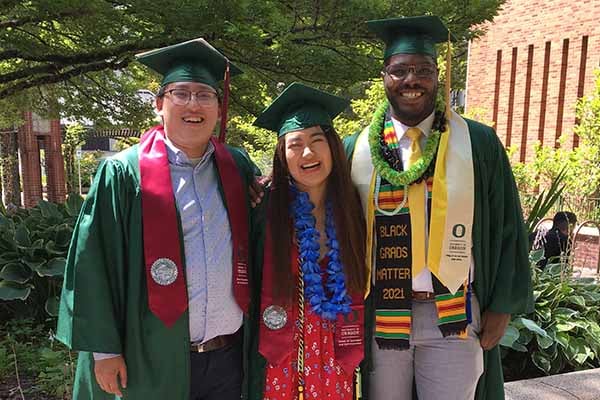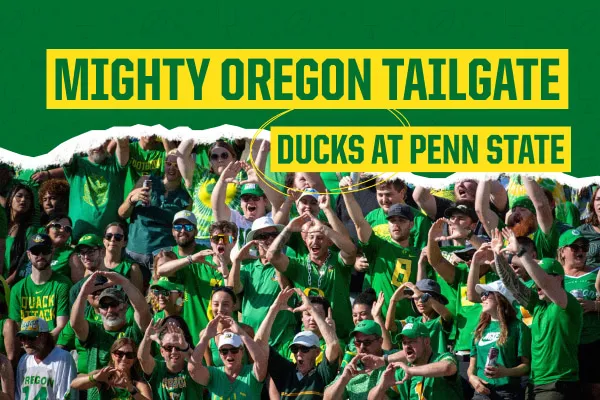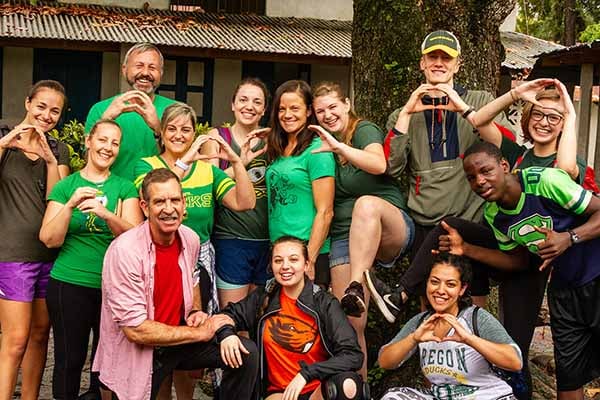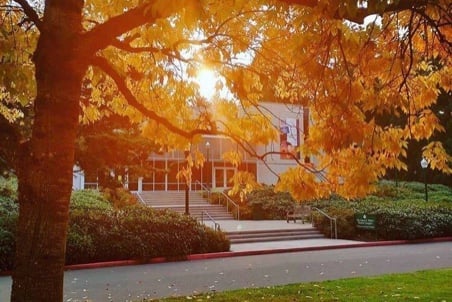November 30, 2021
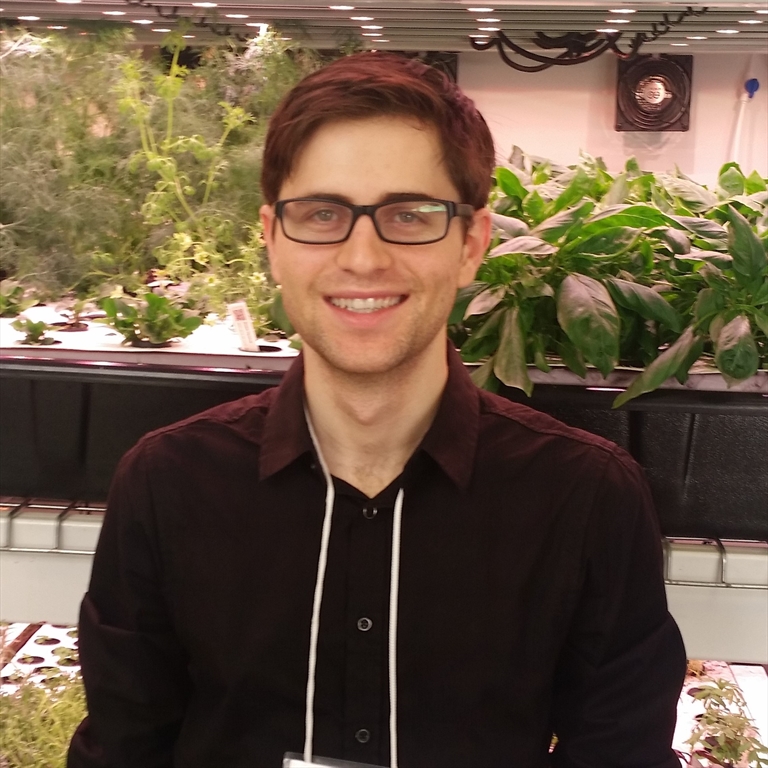
Andrew Blume, BS '12
Major: Business Administration
Job Title: Strategic Sales Manager for Iron Ox
Part of the Daily Emerald "Ducks Take Flight" feature
Andrew Blume graduated from the University of Oregon in 2012 and majored in business administration, but says food has always been his lifelong passion. Today, he combines his love for cuisine and skill with business as the strategic sales manager for Iron Ox, growing fresh and beautiful sustainable produce out of California.
What led you to seek a career in sustainable farming?
In my family, it was instilled in us to think about nature and the world we live in. My mom was a farmers market director so I spent a lot of time talking with farmers, learning about their trade, their practice, what made sense for them, and I was able to see the immense pride they took in their profession. This led me to become interested in where food comes from and how it’s grown.
What skills or key takeaways did you gain from your time at the UO that you now implement in your career?
In business school, I took a business writing class that taught me how to be concise. In the real world, everything moves too fast for a full analysis. At UO, I learned how less is more. I think also joining clubs, joining trade associations, that kind of stuff will really give you a lot of exposure.
Your company, Iron Ox, is leading the way in solving global climate issues through renewably grown food. How is this done? What can we as consumers expect from future farming techniques?
Based in California’s Silicon Valley, Iron Ox is an agriculture technology startup with deep expertise in robotics and artificial intelligence. The company’s mission is to make growing fresh produce carbon negative. Iron Ox has redesigned every step of the farming process, from seed to store to shelf, achieving levels of precision that are impossible through conventional farming.
And while any greenhouse could pop up nearby, Iron Ox grows produce in proprietary greenhouses designed from the ground up to mitigate the environmental impacts of agriculture. The close-loop system optimizes plant yield, expands growth cycles and maximizes crop quality. The result is delicious, nutritious, locally sourced fruits and vegetables that currently cost about the same as produce from conventional farms, with substantially lower environmental impacts.
How important is it to network and sell yourself?
I think it's absolutely critical. If I just came and said I have passion, that wouldn't have been enough. Not only do I have passion, but I have combined that with the skills that I learned in Oregon and parlayed all of that into networking, and building a digital portfolio of all my career accomplishments and learnings into blog posts. You need a really unique perspective and a place where you are asking the right people the right question at the right time. This allows me to sell myself and tell my own story with proof points along the way.
Is sustainable farming something you thought you’d get into from the beginning?
I think it ebbed and flowed. My interests always changed but sustainable farming certainly was a motif in my life. One thing that I did notice, in going to all these farmers markets, was seeing the economic struggle of the farmers and that's partly why I wanted to be a business major. It was to better understand and make sure that whatever I did in my life, I'd have food on my table.
After graduating with a business degree, I was working in the casino industry, marketing, and that taught me a lot of good skills, but while I was still working that job, I wasn’t satisfied with what I was doing and the impact that I was having on the world. So I started looking for volunteer work and circled back to my passion of food and agriculture and the intersection there.
Is there a lot of uncertainty in your day to day operations and how do you combat that?
I think anytime you're working in a fast-paced startup environment or any business environment, there's going to be stress, there are going to be moments of workplace drama, or just high pressure situations. That's what keeps it fun, especially given everything that's going on in today's business environment, when we look at the pandemic, the global supply chain shortages, labor shortages, climate risk, all of those certainly induced stress, but they make the work that much more meaningful because we're really working on solutions that will increase our resilience as a nation, and I feel like that's very rewarding to do.
I know that at the end of the day, my co-workers and I are working towards the same goal and we might have a slightly different perspective or point of view so I try to remember at the end of each night, what do I need to let go of? We're all working as hard as we can and we make a million decisions a day and half a million interactions a day. So you have to let go of the one or two that don't go ideally in your head and maintain a good tone.
Favorite UO memory?
One piece of advice a senior gave me when I was a freshman was to always take a PE class every quarter. And I learned so many different things, I just played a sport every quarter. I made a lot of really great friends which kind of takes it back to your networking question of befriending the students that you meet. There's going to be people who are going to build great careers and you'll find yourself crossing paths with them again later on.



